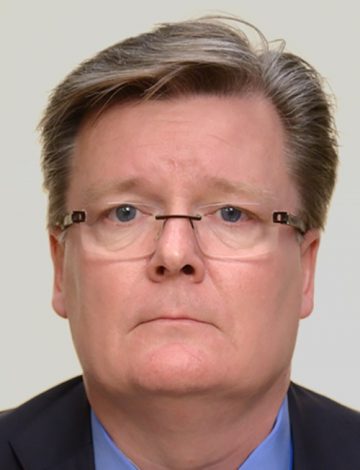EU-Russia relations and the Baltic Sea Region

Petteri Vuorimäki,
Senior Expert, European External Action Service (EEAS),
Chair of the CBSS Group of Independent Experts, 2017-18 (CBSS Vision Group)
When I arrived in Brussels in January 2003 the EU-Russia relations were riding on the crest of a dynamic wave and while Parties had different views and levels of ambition on some aspects, there was a clear, positive, hopeful and forward looking atmosphere prevailing. Preparations were in full swing for the historic EU-Russia Summit in St. Petersburg in May 2003. Subsequent years witnessed the creation of the Roadmaps for the Four Common Spaces; an intensive series of meetings at all levels; negotiations on a new comprehensive and legally binding agreement to replace the Partnership and Cooperation Agreement; the transformation of the Northern Dimension into a common policy between four equal partners (EU, Russia, Norway and Iceland), the Partnership for Modernisation, the conclusion of a visa facilitation agreement, to name only the key developments. As for the Baltic Sea Region, the publication of EU’s first macro-regional Strategy marked a milestone and that Strategy clearly noted the importance of further cooperation with the Russian Federation in order to be able to address the challenges which cross national borders and which are common.
When I leave Brussels in the summer of 2019 the overall atmosphere is much gloomier, much more pessimistic and much more tense. The EU and other partners have clearly expressed their discontent, including through various types of restrictive measures, regarding the illegal annexation of Crimean peninsula and Russia’s actions in eastern Ukraine. The EU itself has stayed united and based its actions on the well-known five guiding principles which provide the framework for EU’s relations with Russia for the foreseeable future. In just a few years the relationship has gone from the joint aspiration to establish a strategic partnership to the formulation in the EU’s 2015 Global Strategy on Foreign and Security Policy that managing the relationship with Russia presents a “key strategic challenge for the Union”. For someone like me who has spent the past few decades trying to promote cooperation with Russia, the current situation is sad or to use a British understatement, sub-optimal.
Having said that, cooperation at a regional level (not least in the Baltic Sea Region context) has continued to function well. The various types of cross-border challenges faced by all and opportunities for the benefit of all can only be solved through cooperation between all. A reformed Council of the Baltic Sea States and a fully utilised Northern Dimension Policy, and its Partnerships (Environment, Public Health and Social Well-being, Transport and Logistics, Culture) could play an instrumental role in this regard. The Northern Dimension has since 2006 been a genuinely common policy. Cross Border Cooperation programmes combine funding from the EU and the Russian Federation and both the EU and Russia are full members in both the Council of the Baltic Sea States and Barents Euro Arctic Council. Therefore, the structures are there to allow for constructive and mutually beneficial cooperation to take place, despite political differences (even those which are fundamental in nature). In addition to producing concrete results for the benefit of citizens in the region, they can also play an important confidence building function during difficult times.
The CBSS Vision Group which I had the pleasure to chair was tasked to elaborate “a report with recommendations for a vision” for both the region and the CBSS. This was a tall undertaking but I am convinced that the decision makers in the region will find our final report of use. Producing recommendations may be easy but putting them into operational practice is always harder. This requires common resolve, determination and commitment. Cooperation is possible and desirable and there is no alternative not to cooperate if the region is to prosper. The current state of EU-Russia relations does not make such cooperation impossible since for the EU some of the guiding principles (selective engagement, support to people-to-people contacts and support to civil society) can well be used, and are being used, as the basis for action also in the context of the Baltic Sea Region. What the region would, however need, is a more holistic view, more coordination between different actors and the ability for the actors to see the necessary linkages and synergies. All this requires some creativity, and perhaps also patience.
The vision that the report presented was that of a region which is prosperous, safe and secure for all its people; open, transparent and inclusive for all nations and nationalities across the region and beyond; confident with its own strong regional identity and focused on sustainable economic growth and development, while being fully aware of its ecological vulnerabilities; committed to pursuing vibrant and enhanced exchanges between its people, especially in the field of education, better inclusion, prosperity and social cohesion; protective of human security and safe societies and capable of building trust between its nations.
The means to realize that vision would necessitate promoting further dialogue and communication: sustaining high level political contacts; enhancing the role of the CBSS Secretariat; for all to provide sufficient funding; analysing better the ecosystem composed of regional actors and by working to ensure that the EU Strategy for the Baltic Sea Region and Russia’s Strategy for the North-West Russia are able to create synergies and results. Cooperation would also entail pursuing closer engagement with Belarus on key issues of common interest.
All actors around the Baltic Sea Region, and beyond, can contribute to ensuring that this vision does not end up as a mirage but that it turns into a reality. After all, regional cooperation is always important. During times of tension and disagreements, it is particularly important.
Expert article 2528
The views expressed in this article are of a personal nature and do not necessarily reflect the views of either the European External Action Service or the Ministry for Foreign Affairs of Finland.
